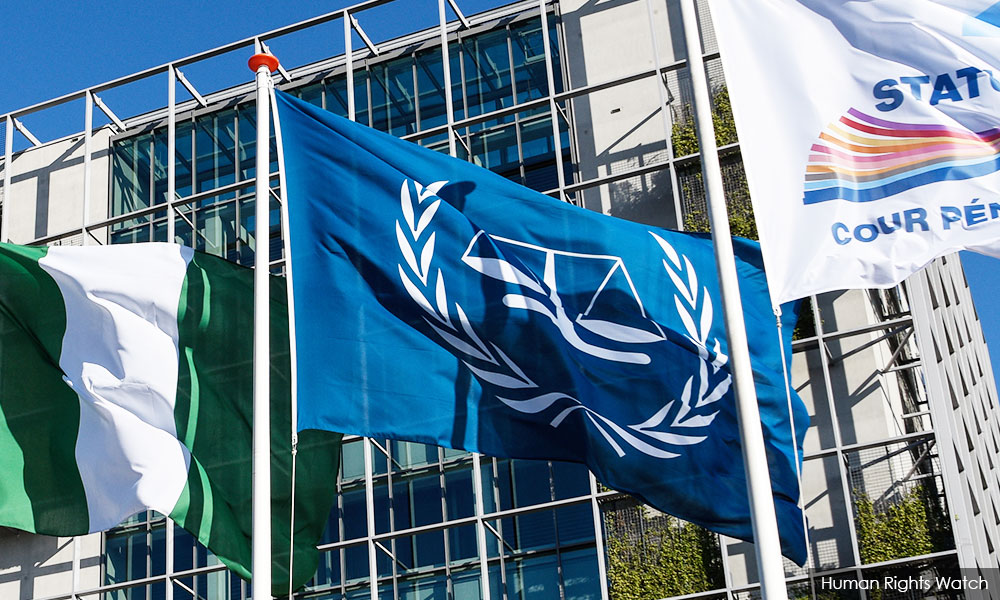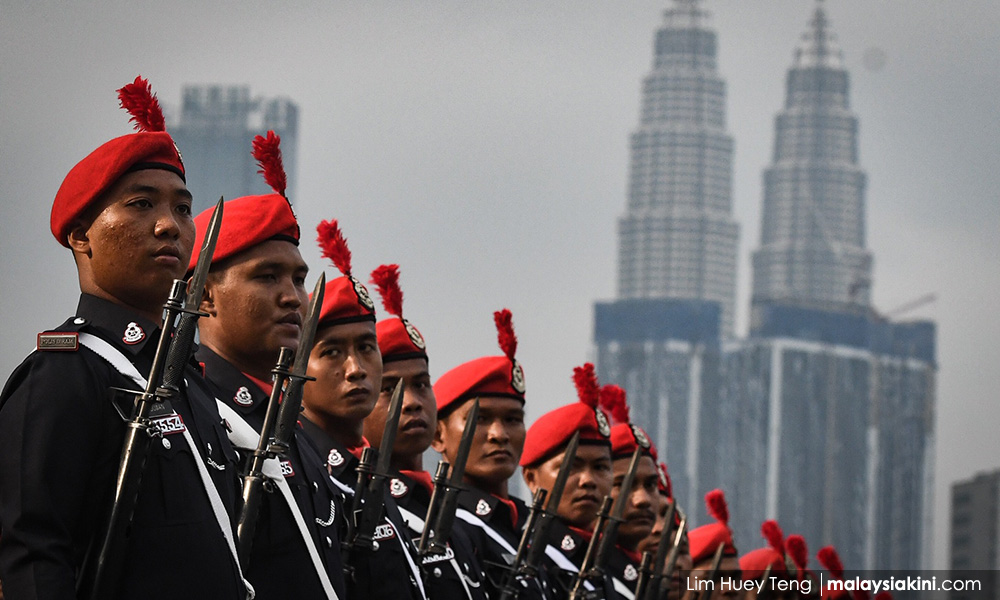
Published by The Star, image from Malaysiakini.
“Never negotiate with terrorists.”
This dictum is probably as old as terrorism itself. The logic is as simple as it is sound.
If you give in to terrorists, this invariably incentivises other terrorists to attack and terrorise you, as the tactic will have been proven to be effective.
Once you start giving in to terrorists and bullies, you will almost instantly be overrun by more of the same who smell weakness and blood.
On Friday, Prime Minister Tun Dr Mahathir Mohammad announced that the government was withdrawing its accession to the Rome Statute of the International Criminal Court (ICC).
In doing so, he had a number of choice words for the people he felt were responsible for forcing the government’s hand in this matter. He did not name names, but his targets are obvious to anyone who is paying the least bit of attention.
A particular quote that stood out:
The prime minister said the withdrawal was due to the confusion of “one particular person who wants to be free to beat up people”.
“If he does that, I will send the police after him. I do not care who he is.”
The 14th General Elections marked the beginning of Malaysia’s journey into completely uncharted political waters.
In this era, Malaysia’s future will not be determined by mice who are playing safe and scrambling around timidly trying to “figure out” the new landscape – but by visionaries who are boldly working to shape it.
If the government lacks the courage to fulfil its mandate and forge the new, principled Malaysia it promised it would, then less principled bullies will take advantage of that gaping vacuum and twist Malaysia in dark ways for their own benefit – making things just as they were under the previous administration.
Two similar cases are instructive in illuminating this point – one involving The International Convention on the Elimination of All Forms of Racial Discrimination (Icerd), and one involving the ICC.
In both cases, the government sought to accede to an international convention. Some elements in Malaysia then objected loudly against the accession, and the government ultimately backed down, submitted to the pressure, and reversed their decision.
It seems that the signal being sent is clear: if you want the government to do what you want them to do – instead of what they want to do – all you have to do is to threaten and bully them.
While Icerd in and of itself is an inoffensive convention that is fine to sign, I believe it was nowhere near the top of the list with regards to what we need to prioritise in building racial harmony.
This doesn’t mean I believe in the rhetoric that was most often used to justify objecting to Icerd.
Nevertheless, with the protest rallies attended by tens of thousands of Malaysians, one could argue – albeit only by stretching some definitions – that the government eventually responded to democratic demands.
In the case of the Rome Statute of the ICC however, the major decisions appear to have been engineered behind the closed doors of small rooms.
Some arguing against acceding to the ICC suggested that monarchs could be at risk if some “irresponsible parties” were to “engineer war crimes” and then mischievously pin the blame on the monarchs.
This year, we have seen people trying to pass off fake degrees as real ones, deny the existence of any gay people in Malaysia, and sell the idea of flying cars. Just when you think we have hit the bottom of the barrel of mind-numbing illogicality, we get fed fantastical scenarios like this. It makes one’s head spin.
This is the complete opposite of rule by democracy. With circumstances unfolding as they are, we may soon be awash with rumours that we are in fact facing rule by blackmail of some sort.
It stands to reason that similar parties were behind pressuring the government to withdraw from both Icerd and the Rome Statutes.
Said parties are now more likely to feel even more emboldened than ever, and to strengthen their resolve to further assert self-interested agendas through undemocratic means, since the government appears to have completely misplaced whatever semblance of a backbone it is supposed to have.
Malaysia’s ruling coalition seems to be obsessed with many fears. The fear of losing the Malay vote, the fear of being a one-term government, and so on.
The boldness with which they seized Malaysia out of the previous government’s clutches seems all but gone – replaced with a timid attitude of playing not to lose, instead of playing to win.
As they continue to flip flop, U-turn and feebly give in to pressure out of fear of upsetting voters in the short term, they should perhaps pay heed to the words of Jean de La Fontaine (or Master Oogway), who said: “A person often meets his destiny on the road he took to avoid it.”
In the arena of politics, people respond to strength, courage and boldness.
It is always laudable to listen to the people; but remember, “people” here refers to actual everyday Malaysian citizens – not self-interested parties with narrow agendas.
Politicians act as if they need to win a daily popularity contest, and let their “principles” be blown about by ever changing winds.
A statesperson who has been justly given a democratic mandate knows to hold fast to real principles, act courageously to fulfil long term goals, and to wait for their actions to be judged by the public when the proper time comes.
Moving forward, Malaysia’s government must decide if they want to cower and be led about by the nose by vested interests, or whether they want to boldly take charge, and do what we voted them in to do.
Nathaniel Tan is Director of Media & Communications at EMIR Research, an independent think-tank focused on strategic policy recommendations based upon rigorous research.

